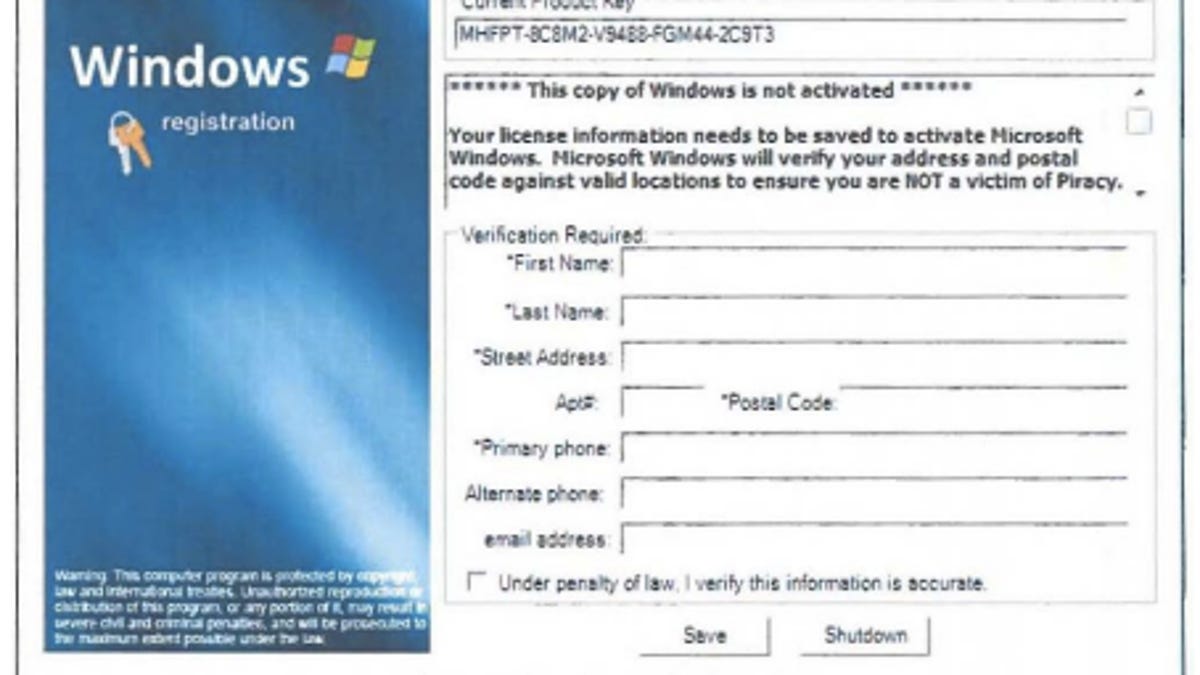Rent-to-own firms settle computer spying charges
Rented computers had software on them that was used to surreptitiously log key strokes, capture screen shots and take photos of people who were late on payments, FTC says.

Eight companies accused of spying on consumers via rented computers have agreed to settle charges that they broke the law and engaged in unfair business practices, the Federal Trade Commission announced.
The rent-to-own companies are accused of using a program called "Detective Mode" that pinpointed the whereabouts of computers via geolocation tracking software if consumers were late on payments.
The software also was used to log key strokes, capture screen shots and take photos with the webcam, and it displayed a fake software registration screen ostensibly from Microsoft or Yahoo that tricked customers into providing their personal contact information, according to an FTC statement released today.
The data gathered by the software "revealed private and confidential details about computer users, such as user names and passwords for email accounts, social media websites, and financial institutions; Social Security numbers; medical records; private emails to doctors; bank and credit card statements; and webcam pictures of children, partially undressed individuals, and intimate activities at home," the agency said.
The complaint (PDF) says:
Because of DesignerWare's intrusions, consumers are at risk of harm from the exposure of personal, financial account access, and medical information to strangers. Consumers are harmed by DesignerWare's unwarranted invasion into their homes and lives and its capture of the private details of individual and family life, including, for example, images of visitors, children, family interactions, partially undressed individuals, and couples engaged in intimate activities. Sharing these images with third parties can cause consumers financial and physical injury and impair their peaceful enjoyment of their homes.
The rent-to-own companies were charged with breaking the law by secretly collecting confidential and personal consumer information and using it to try to collect money from them, and deceptive business practices by using the bogus "registration" page, according to the FTC.
Software maker DesignerWare and seven computer rental stores have agreed to the settlement, which has a 30-day public comment period before the FTC decides whether or not to approve it.
Meanwhile, the Attorney General's office of Illinois has filed an action against one of the companies named in the settlement, Watershed Development Corp., according to the FTC. Representatives from Watershed Development Corp. did not immediately return a call seeking comment this afternoon. We'll update this post if and when we get a response.
Under the agreement, the firms would face a penalty of $16,000 per violation per day. The FTC does not have the authority to get civil penalties for a first offense of the FTC Act, FTC spokeswoman Claudia Bourne Farrell said.

